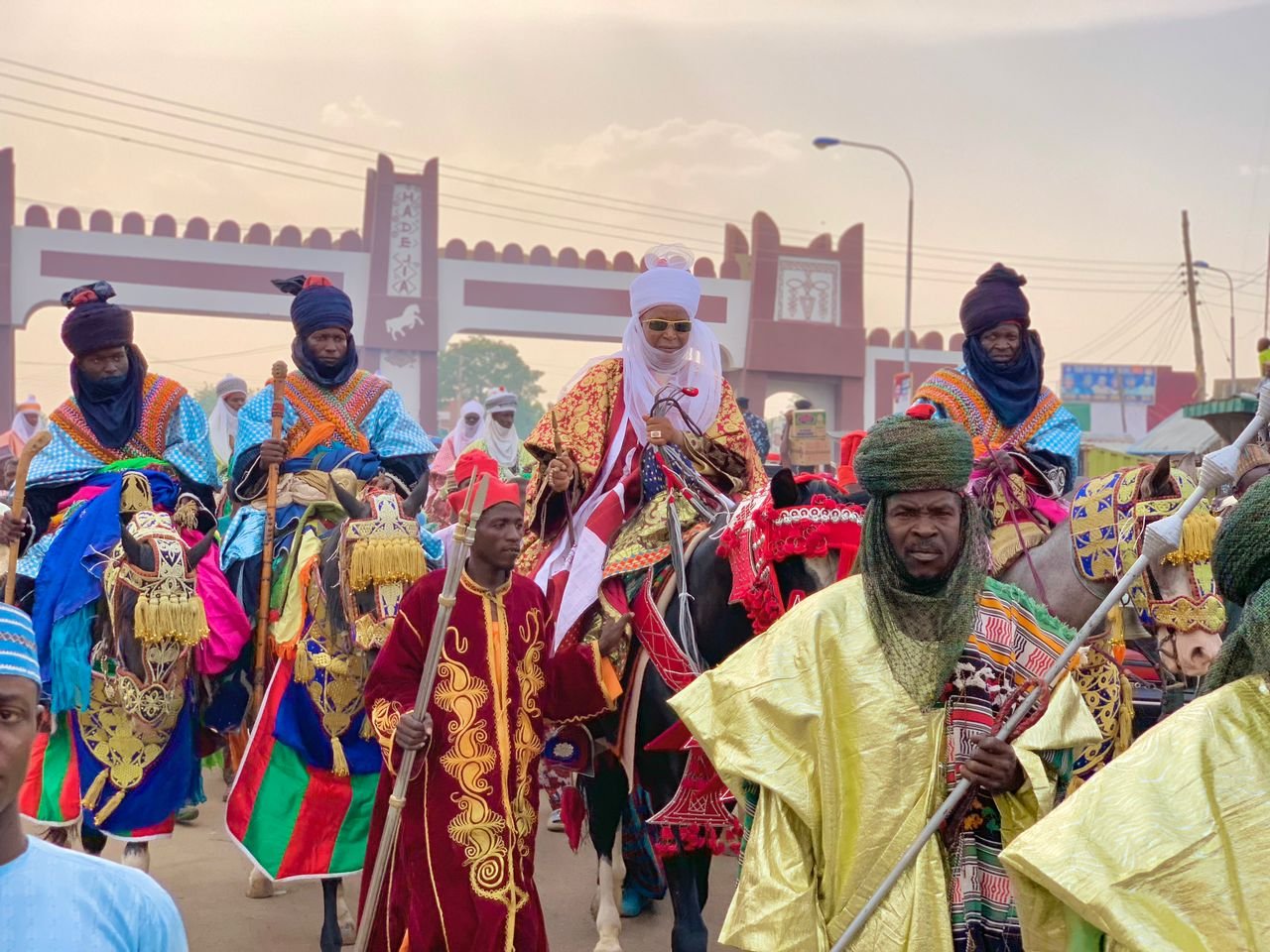Northern Nigeria, a region of remarkable diversity, is steeped in a cultural heritage that spans centuries. The region, often referred to as the “Sahel” due to its proximity to the Sahara Desert, is home to a multitude of ethnic groups, each with its unique traditions, languages, and histories. This article explores the cultural heritage of Northern Nigeria, highlighting its significance, the diversity of its people, and the efforts made to preserve this rich legacy.
1. The Diversity of Northern Nigeria
Northern Nigeria encompasses a vast geographical area, comprising 19 states. This expansive region is inhabited by numerous ethnic groups, with the Hausa, Fulani, Kanuri, Nupe, and Tiv being some of the most prominent. Each group brings its distinctive cultural elements, creating a mosaic of traditions, languages, and customs.
2. The Hausa People: Guardians of Tradition
The Hausa people, one of the largest ethnic groups in Northern Nigeria, are renowned for their rich cultural heritage. Their language, Hausa, serves as a lingua franca in the region, fostering communication between various ethnic groups. The Hausa culture is characterized by its vibrant music, dance, art, and literature. Traditional Hausa attire, with its intricate embroidery and colorful designs, is a visual representation of their cultural identity.
3. Fulani Nomads: A Unique Way of Life
The Fulani, known for their nomadic lifestyle, have a distinct cultural heritage deeply rooted in cattle herding. Their traditional attire, which includes flowing robes and distinctive headgear, reflects their heritage. The Fulani are also known for their intricate jewelry, music, and storytelling, which are integral to their cultural expression.
4. Kanuri Civilization: A Historical Legacy
The Kanuri people, concentrated mainly in Borno State, have a long and illustrious history. Their ancestors built the Kanem-Bornu Empire, which was a significant center of trade and Islamic scholarship in medieval Africa. The remnants of this civilization, including architectural wonders and ancient manuscripts, stand as a testament to their rich heritage.
5. The Nupe Kingdom: Preserving Tradition
In Niger State, the Nupe people continue to uphold their cultural traditions, which include festivals, music, and dances. The Etsu Nupe, their traditional ruler, plays a vital role in preserving and promoting the Nupe culture. The annual Nupe Day celebration showcases their cultural vibrancy, featuring colorful parades and traditional performances.
6. Tiv Culture: Agriculture and Festivals
The Tiv people, primarily found in Benue State, are renowned for their agrarian lifestyle. Their cultural heritage revolves around farming, with festivals such as the Yam Festival celebrating the harvest season. Traditional Tiv dances and rituals reflect their close relationship with the land.
7. Religion and Spirituality
Northern Nigeria is a region where religion plays a pivotal role in people’s lives. Islam is the dominant religion, with many mosques and Islamic schools dotting the landscape. However, traditional African religions also persist, with rituals and ceremonies maintaining their significance.
8. Arts and Crafts: A Window into Culture
The artistic expressions of Northern Nigeria are captivating and diverse. Intricate woodcarvings, pottery, and textiles reflect the creativity and craftsmanship of the region’s people. These art forms often incorporate cultural motifs and symbols, telling stories of the past and present.
9. Language Diversity
The linguistic diversity in Northern Nigeria is remarkable. Apart from the dominant Hausa and Fulfulde (the Fulani language), numerous other languages are spoken, each with its unique nuances and dialects. This linguistic wealth is an integral part of the region’s cultural heritage.
10. Challenges to Cultural Preservation
Despite the rich cultural heritage of Northern Nigeria, several challenges threaten its preservation. Rapid urbanization, globalization, and modernization have led to a gradual erosion of traditional values and practices. Moreover, conflicts in the region have disrupted communities and cultural continuity.
11. Efforts in Cultural Preservation
Recognizing the importance of preserving their cultural heritage, many communities in Northern Nigeria have initiated efforts to safeguard their traditions. These include cultural festivals, heritage centers, and oral history projects that document the stories and wisdom of the elders.
12. Conclusion: Embracing Diversity
In conclusion, Northern Nigeria’s cultural heritage is a tapestry of traditions, languages, and customs that reflect the region’s rich history and diversity. As the world evolves, it is essential to recognize the value of preserving these unique cultural legacies. By celebrating and protecting the cultural heritage of Northern Nigeria, we not only honor the past but also enrich the future for generations to come.










